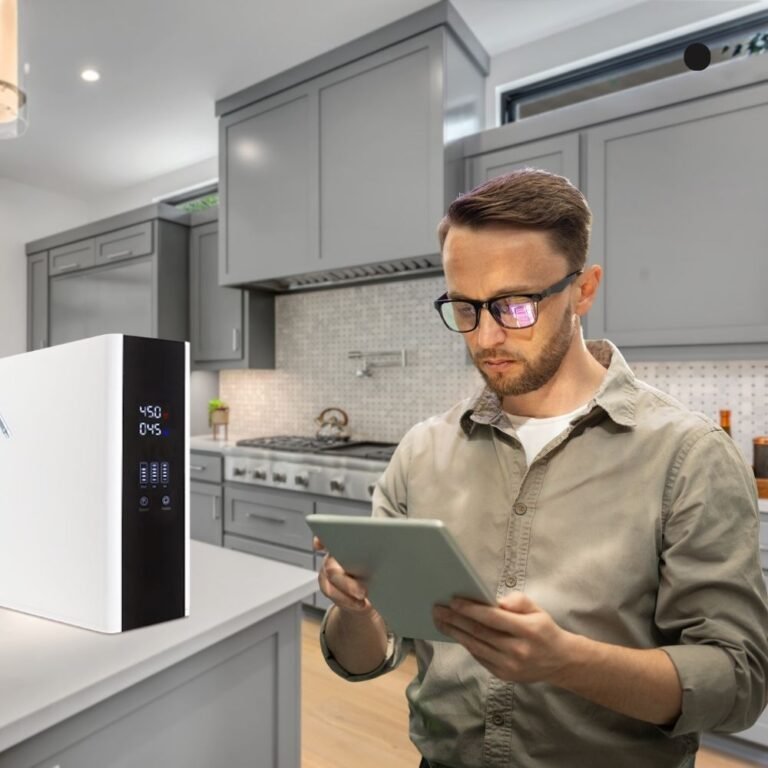What Science Says About the Safety of Drinking Reverse Osmosis Water
Reverse osmosis is a water purification process that utilizes a semipermeable membrane to remove impurities from water. This process has become increasingly popular in recent years as concerns about the safety of tap water have grown. But what does science say about the safety of drinking reverse osmosis water?
According to a study conducted by the World Health Organization, reverse osmosis is an effective method for removing a wide range of contaminants from water, including bacteria, viruses, and chemicals such as lead and fluoride. The study found that reverse osmosis can remove up to 99% of these contaminants, making it a highly effective method for purifying water.
However, some people have raised concerns about the safety of drinking reverse osmosis water. One of the main concerns is that reverse osmosis can remove minerals from water that are essential for good health, such as calcium and magnesium.
The Role of Minerals in Drinking Water
Minerals are essential nutrients that the body needs to function properly. They play a role in everything from bone health to heart health to brain function. Some minerals, such as calcium and magnesium, are also important for maintaining healthy teeth.
Drinking water can be a significant source of minerals for the body, particularly in areas where the soil is deficient in these nutrients. However, the amount of minerals in drinking water can vary widely depending on the source of the water and the treatment process used to purify it.
Reverse osmosis is one method of water purification that can remove minerals from water. However, it is important to note that minerals are not the only nutrients that the body needs. In fact, many people get most of their minerals from the food they eat rather than from drinking water.
Furthermore, some minerals can actually be harmful in high doses. For example, excessive intake of lead, arsenic, and other heavy metals can cause a range of health problems, including neurological damage and cancer.
The Safety of Drinking Reverse Osmosis Water
So, is reverse osmosis water safe to drink? The answer is yes, according to numerous studies conducted by reputable organizations such as the World Health Organization and the Environmental Protection Agency.
Reverse osmosis is an effective method for removing a wide range of contaminants from water, including bacteria, viruses, and chemicals such as lead and fluoride. In fact, reverse osmosis is one of the few methods of water purification that can remove fluoride, which has been linked to a range of health problems in high doses.
Furthermore, reverse osmosis does not remove all minerals from water. While it can remove some minerals, such as calcium and magnesium, it does not remove all minerals. In fact, some minerals, such as sodium and potassium, can actually be increased in concentration by reverse osmosis.
Overall, the safety of drinking reverse osmosis water depends on the source of the water and the treatment process used. For example, if the source of the water is contaminated with heavy metals or other harmful substances, reverse osmosis may not be enough to fully purify the water. In these cases, additional treatment methods may be necessary.
The Benefits of Drinking Reverse Osmosis Water
Despite some concerns about the safety of drinking reverse osmosis water, there are many benefits to this method of water purification. Here are just a few:
- Removes contaminants: Reverse osmosis is one of the most effective methods of water purification available, capable of removing up to 99% of contaminants from water.
- Improves taste: Removing contaminants from water can improve its taste and odor, making it more pleasant to drink.
- Reduces plastic waste: By purifying your own water at home, you can reduce your reliance on bottled water and help reduce plastic waste.
- Cost-effective: While the initial cost of a reverse osmosis system can be high, the long-term cost savings can be significant compared to purchasing bottled water.
- Environmentally friendly: By reducing your reliance on bottled water, you can help reduce the environmental impact of plastic waste.
About eWater
eWater is a provider of reverse osmosis water purification systems for homes and businesses. Their systems are designed to remove a wide range of contaminants from water, including bacteria, viruses, and chemicals such as lead and fluoride. With eWater’s systems, you can enjoy safe, clean, and great-tasting water right from your tap.
At eWater, we believe that everyone deserves access to safe, clean drinking water. That’s why we offer a range of affordable reverse osmosis systems that are designed to fit any budget. Whether you’re looking for a system for your home or business, eWater has the perfect solution for you.
Conclusion
Overall, science supports the safety of drinking reverse osmosis water. While this method of water purification can remove minerals from water, it is still an effective way to remove contaminants and improve the taste and odor of water. By using a reverse osmosis system, you can enjoy safe, clean, and great-tasting water right from your tap. And with eWater’s affordable and high-quality systems, you can have peace of mind knowing that you’re getting the best water possible.


